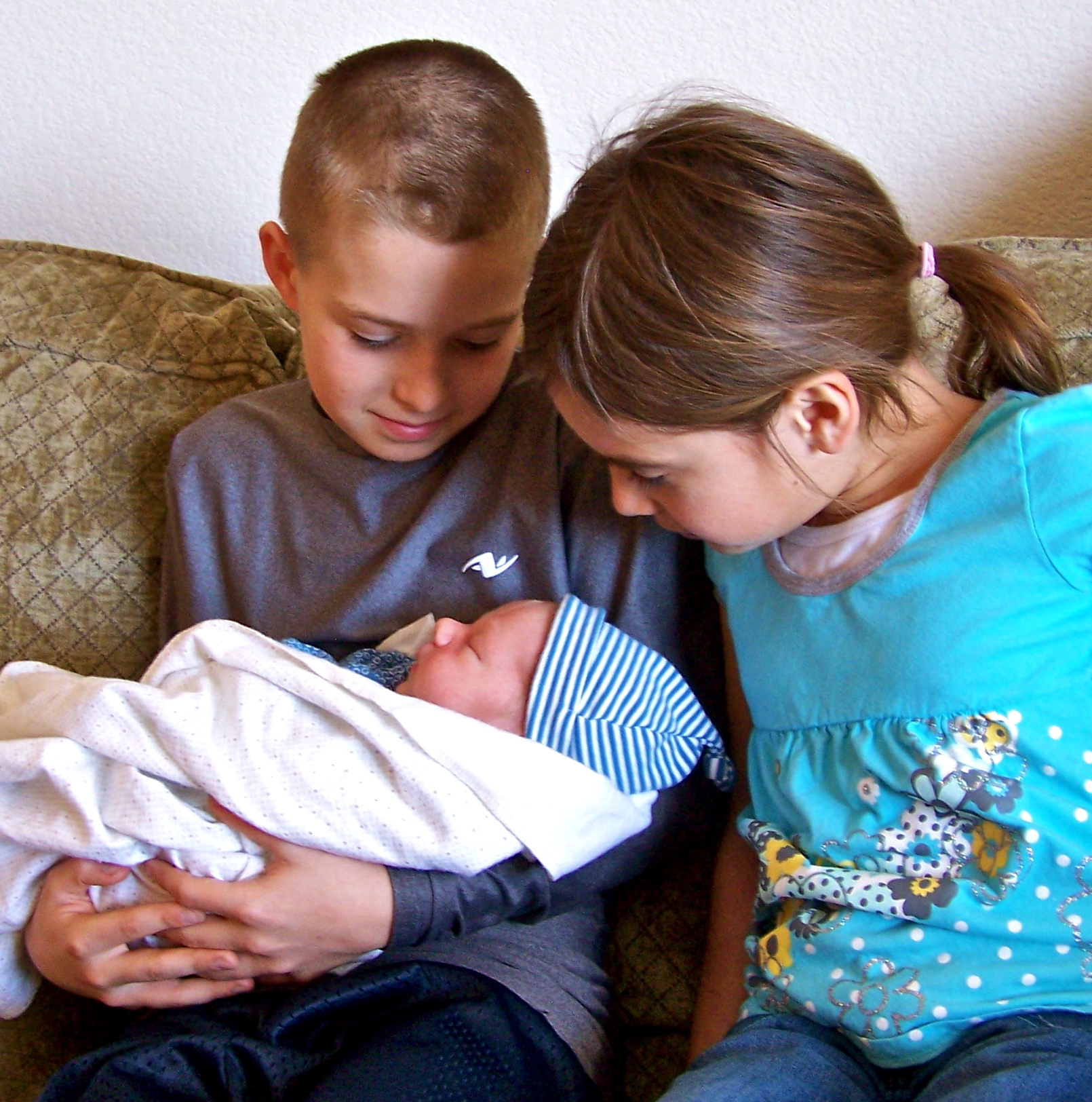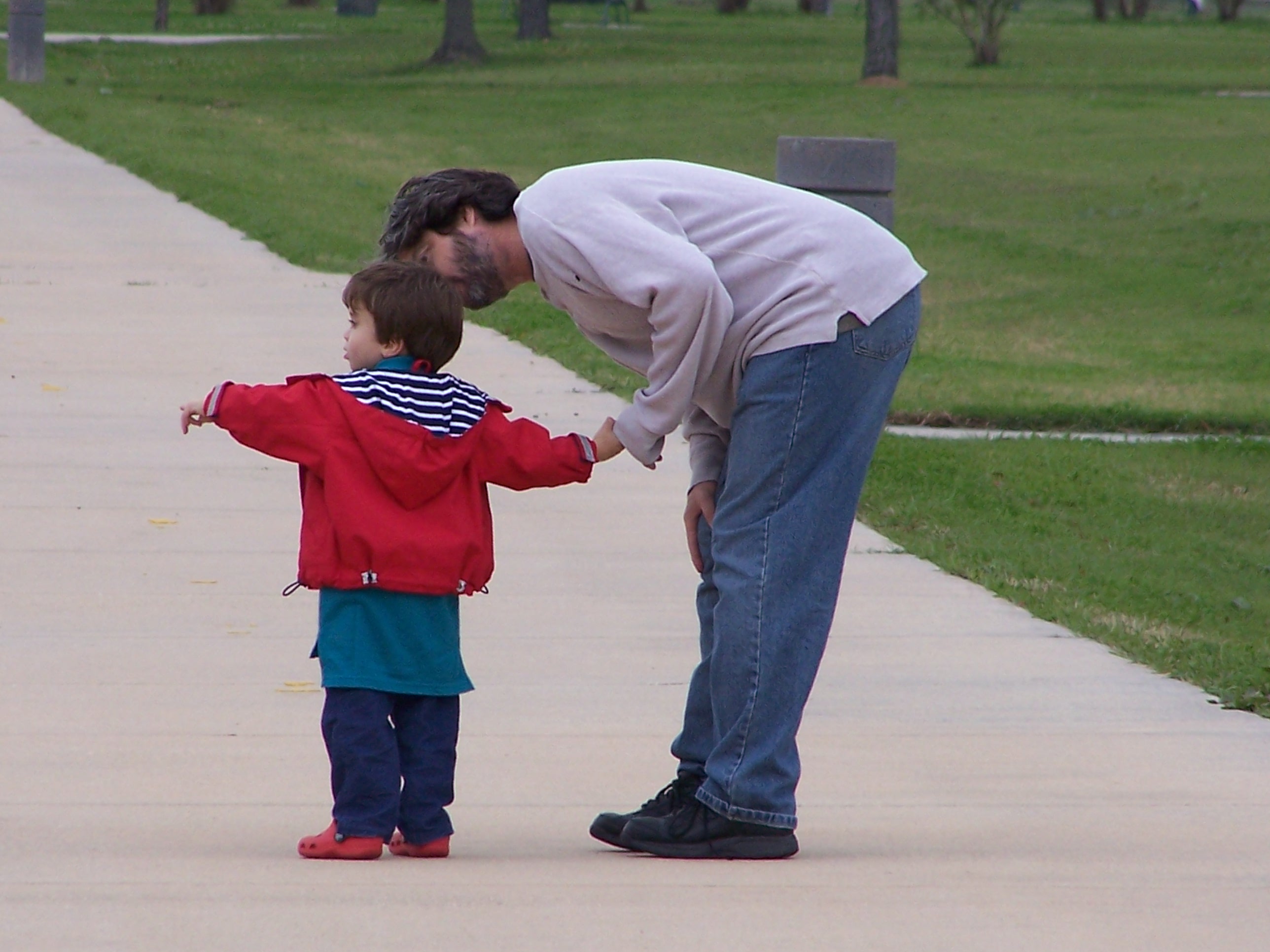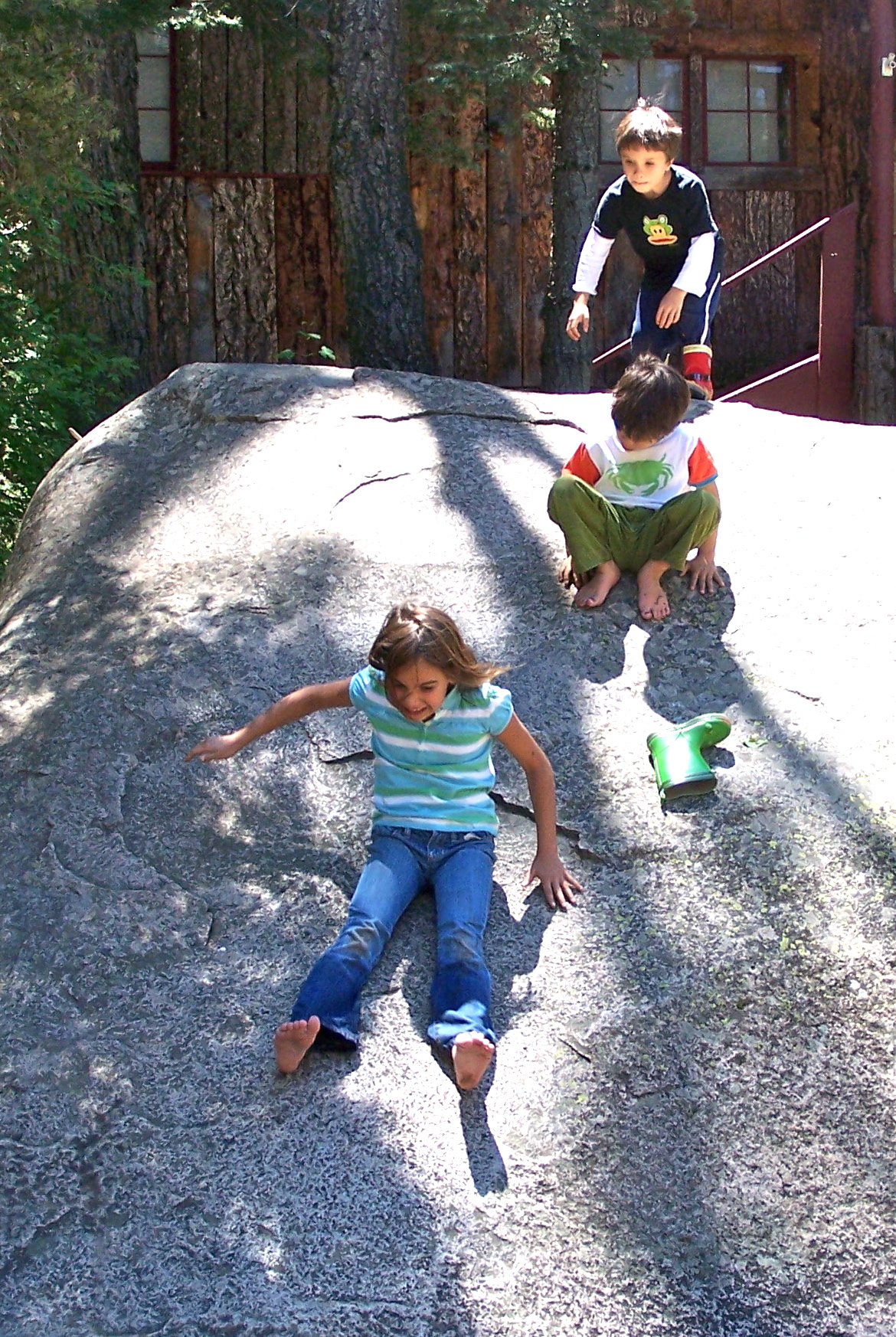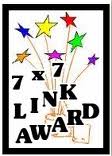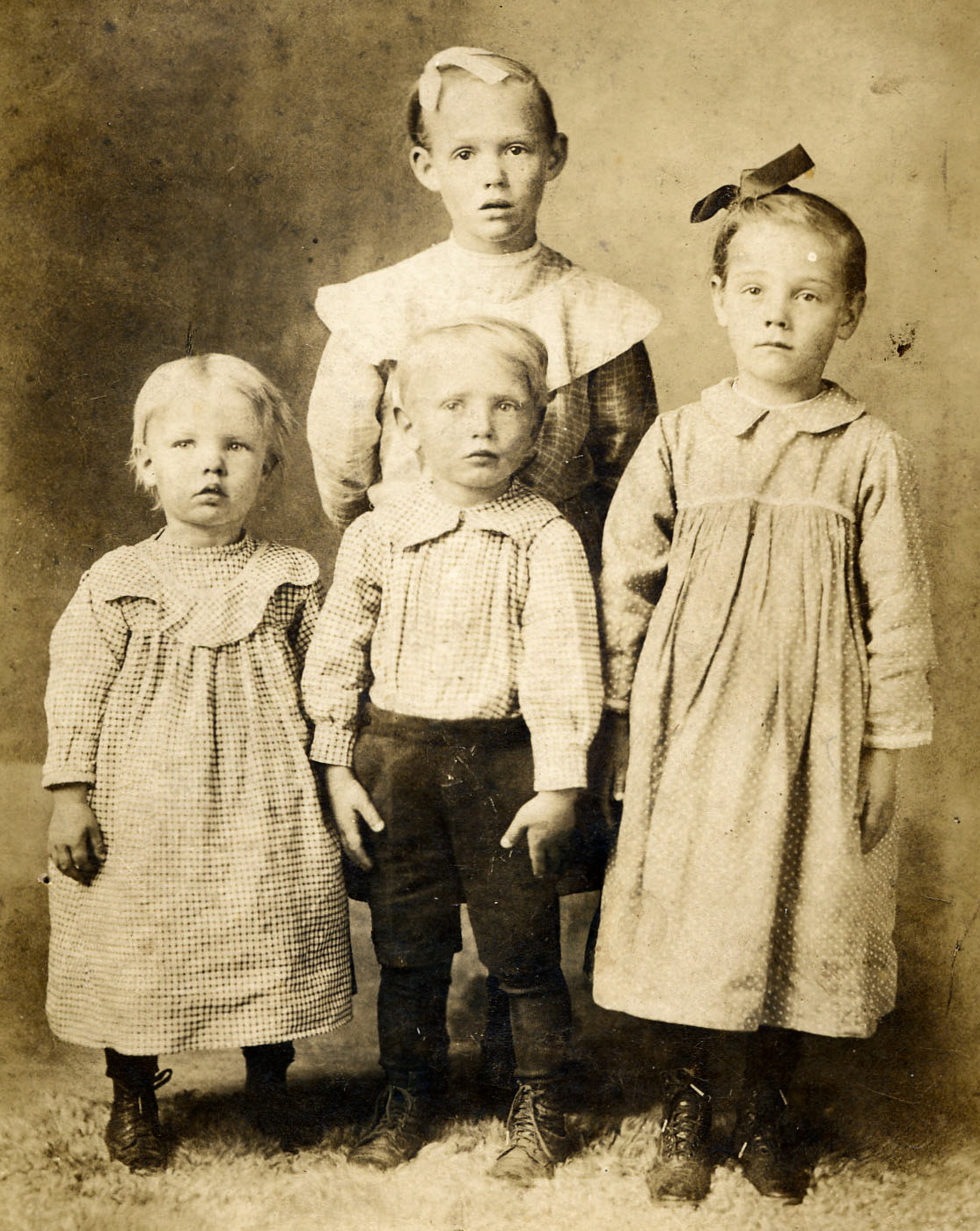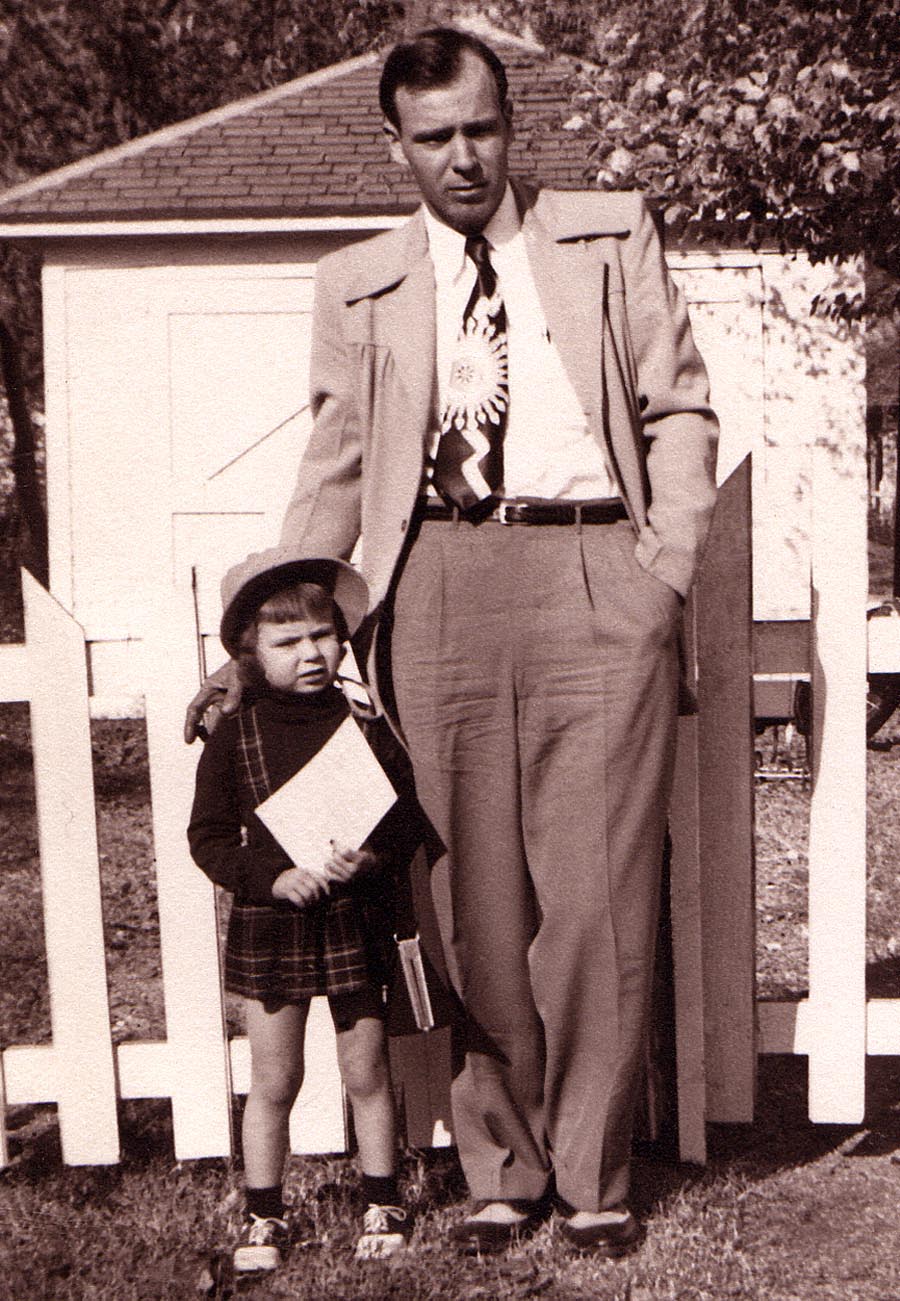Find your own drum beat, and then begin to walk.
Tag Archives: child
More than a village
It’s true. It takes a village to raise a child. It is also true that not just any village will do. Truly raising a child requires villagers willing to look past the rough, unfinished exterior.  People willing to see both the core, and the possibility of becoming within each child. Children don’t need perfect villagers. They need real ones. People aware that although they may be more “finished” than the children in the community, they still have growing to do.
People willing to see both the core, and the possibility of becoming within each child. Children don’t need perfect villagers. They need real ones. People aware that although they may be more “finished” than the children in the community, they still have growing to do.
My Aunt Mary was one of those imperfectly wonderful villagers for me. I spent countless days of summer and holidays in her home with my cousins, riding horses, playing marathon Monopoly, and eating the best ever chocolate cake with white icing. While at Aunt Mary’s house, I was one of her kids, nurtured and disciplined.
I think I understood from the beginning that my Aunt Mary was a wonderful, committed adult in my village. But it was during a conversation with her after I was grown, with children of my own that I came to understand the depth of her commitment and her determination to brave her own growth.
 We were standing at the sink, side by side. Her washing, me rinsing. I had stood in that kitchen, at that sink over the years with cousins, laughing, complaining, splashing. Now it was me, a mother myself, having a grown up conversation with Aunt Mary. I talked about my girls. She talked about her grandchildren, one of whom was struggling with bedwetting. You could feel the emotion in her voice as she worried about the potential stigma and hurt for her grandchild. And then she stopped, turning to look at me. Blinking back tears she said, “I hope I never made you feel bad, like there was something wrong with you.” “I hope I never made you think I was angry with you.”
We were standing at the sink, side by side. Her washing, me rinsing. I had stood in that kitchen, at that sink over the years with cousins, laughing, complaining, splashing. Now it was me, a mother myself, having a grown up conversation with Aunt Mary. I talked about my girls. She talked about her grandchildren, one of whom was struggling with bedwetting. You could feel the emotion in her voice as she worried about the potential stigma and hurt for her grandchild. And then she stopped, turning to look at me. Blinking back tears she said, “I hope I never made you feel bad, like there was something wrong with you.” “I hope I never made you think I was angry with you.”
You see, I had been a bedwetter. All the way through elementary school. Her words instantly took me back. I thought of that chapter of my life and the frustration she must have felt at the extra laundry alone created by my bedwetting. Swimming through that sea of memories enabled me to look her in the eye and say without hesitation, “No. Not ever.” In that moment I knew she was the best kind of grown up for a child’s village. She was a villager that cherished the heart of a child above all else. She was a villager brave enough to be real and to keep growing.
Thank you, Aunt Mary.
Kindness plus one…
I don’t know Ryan Garcia. But, Ryan Garcia is my hero. He’s not my hero because of his work. He’s not my hero because he lives in Chicago, even though I love the windy city. He is my hero because of what he chooses to do every day. Ryan Garcia is a bright light in a world of anger, cruelty, and disregard. In a world where the daily news is filled with caustic campaign rhetoric, sports figures getting a bonus for purposefully injuring an opponent, and soldiers are slitting the throats of 12 year olds, Ryan Garcia is a quiet, steady force of goodness moving through each day.
Ryan and his wife gave birth to a daughter in 2011. As the new year approached, Ryan observed, “My daughter is 3 months old. She is starting to become more and more aware of her surroundings.” He thought about who he wanted to be as he lived out 2012, in front of his little girl. That’s when the idea came to him,…366 Random Acts of Kindness. One act of kindness for every day of the upcoming leap year. He began a blog to record his journey, writing, “I just hope that she can see this in the future and try and emulate it.”
For the last 75 days, Ryan Garcia hasn’t missed a day of choosing to do an act of kindness. He has handed out free hugs on a Chicago street, written a letter to a soldier in Afghanistan, complimented 25 strangers, and cleared the snow off all the cars on his block after a snow storm.
He thought about suspending his plan on Day 61, when his father-in-law died unexpectedly. Then he remembered the caring and compassionate man his father-in-law was, and knew that one of the best ways to honor him was to continue. So he extended acts of kindness as he comforted his family, helped with household chores for his mother-in-law, and wrote his father-in-law’s obituary.
I hope it is now no mystery why I think Ryan Garcia is a hero. He is giving the best gift a father can give to a daughter,…a sure and steady path to follow, and a clear picture of what a good man looks like. And who knows how many of us will be changed by his giving. Thank you, Ryan Garcia.
Run, laugh, and lollygag…
I grew up in a moderately large city. I learned to allow for travel time when going from one side of the city to the other. I have now lived nearly half my life in a small town. All these years of small town life and I’m still tripping over the false belief that you can get from any point to another in a matter of minutes. This misconception means I sometimes feel a “beat the clock” anxiety in the car on the way to my destination.
On this particular morning I left my house, driving purposefully, hoping to arrive on time. I entered the school zone, slowing to 25 mph. I proceeded slowly, up the hill, toward the school crossing. I hoped to escape the zone with no unnecessary delays and continue on my way. I saw the crossing guard boldly step into the street. Taking ownership with her red octagon held high, she stopped us in our tracks. It took a second to see the two small children approaching the crossing. Maybe second and third grade. A girl and a boy, perhaps big sister, little brother.
The crossing guard smiled as the girl dutifully, and quickly, crossed the street. “Good job!”, I thought as we waited for the little boy to complete the crossing task. The little boy was taking his own sweet time. My frustration rose. Then my best self started the conversation. “Of course you wouldn’t want to wait for a child.” “Children are to be dismissed, rushed past, redirected.” They run when we try to hold them back. Embarrass us with their over the top exuberance. They lollygag when time is of the essence. What are we to do? Maybe follow their lead.
~~~~~~~~~~~
On Friday morning, January 12, 2007, Joshua Bell took his violin in hand. Leaning against the wall, near a trash can, he played six of the most exquisite classical musical compositions. His violin case lay open at his feet for any charitable gift from a willing listener. Mr. Bell was playing where many other street musicians had played. He was at the L’Enfant Station Plaza of the Washington, D.C. Metro subway.
Something distinguished Joshua bell from other street musicians. Mr. Bell was a world renowned violinist, playing on his rare Stradivarius, as part of an experiment suggested by the Washington Post. The question? “What would happen if one of the world’s great violinists had performed incognito before a traveling rush-hour audience of 1,000-odd people?”
For nearly 45 minutes, Mr. Bell played, and a video camera recorded the event. This musical prodigy played, largely ignored, as 1097 people walked by on their way to somewhere else. The Washington Post writer summed up the “audience” with these words.
“There was no ethnic or demographic pattern to distinguish the people who stayed to watch Bell, or the ones who gave money, from that vast majority who hurried on past, unheeding. Whites, blacks and Asians, young and old, men and women, were represented in all three groups. But the behavior of one demographic remained absolutely consistent. Every single time a child walked past, he or she tried to stop and watch. And every single time, a parent scooted the kid away.” (Pearls Before Breakfast, Gene Weingarten, Washington Post Staff Writer)
The first child that was drawn to the sound of Joseph Bell’s violin was a three year old named Evan. When his mother found out what she had pulled him away from, she laughed and said “Evan is very smart.” Little wonder that the outcome of the test led the writer to note,
“The poet Billy Collins once laughingly observed that all babies are born with a knowledge of poetry, because the lub-dub of the mother’s heart is in iambic meter. Then, Collins said, life slowly starts to choke the poetry out of us. It may be true with music, too.”
I dare you to let a little child lead you back to life.
Consider adding these childlike moments to your day.
Run for no good reason.
Embrace over-the-top exuberance.
Lollygag when you feel the
stress of your day mounting.
Then, find a child and say,
“Thank you!“
Read Gene Weingarten’s entire Washington Post article, Pearls Before Breakfast. It’s a beautifully written, insightful commentary. The video of Joshua Bell’s performance is embedded in the article.
The Lazy A
Oh! dear old barn, where my childish days
Were passed full oft, how I long to be
Only a child again, to play
Beneath thy roof with the old-time glee!From The Old Barn, by Mary Dow Brine (1816-1913)
Gifts re-gifted, or paying it forward…
I would like to thank Jen of step on a crack…or break your mother’s back… for nominating GrowthLines for the 7 X 7 Link Award. Thank you, Jen for setting a worthy standard that proves writing can contain both clarity and beauty. That in a single sentence, writing can guide our steps and document our journey. You remind us that we can write with both honesty and integrity.
I created the GrowthLines blog for many of the same reasons I became a therapist. I wanted to observe and understand the world. To think about what it means to be a self, an individual. And at the same time to acknowledge and celebrate our drive to connect to each other. I wanted to explore the possibilities of being human when we push past all that threatens to hold us back. I wanted to be curious and kind. I wanted to show that we could talk about hard things, without doing it in a hard way.
I still want to do and be all those things, and more. Thinking out loud can be risky business. Managing words can be a little like herding cats. They have a mind, and intent of their own. They’re not above taking you in a direction you hadn’t planned on going. Although it can be unsettling in the moment you’re losing control, this independent streak of words is actually one of the things I like about the process of giving our thoughts a voice, written or spoken. If I take the risk of following the process, I usually appreciate where the words take me. The GrowthLines blog has become a doorway to amazing people, greater self awareness, and the opportunity to be a part of something good. Thank you for stopping by, joining the conversation, and paying it forward.
As a 7 X 7 participant, I am to:
- Share something about me that no one (in the blogging community) knows…
- Link up to 7 posts of mine that I feel worthy:
- Nominate 7 bloggers for this award and inform them (with pleasure):
Something no one in the blogging community knows…
As a child, I was a dreamer. In fact as late as college I still had a wide range of things I wanted to be “when I grew up”. The varied options included being a professional barrel racer, an opera star, a youth worker. In my defense, I grew up in the era of Dale Evans, singing cowgirl and advocate for children
My real reason for the uncharacteristic self disclosure? To say thank you to the host of grown ups in my life who encouraged me to dream big and listened to my oversized musings without throwing cold water on them. I think they knew that the process of living would shrink my list over time, so they just listened and encouraged. I took it for granted at the time, adults encouraging me to dream and dream big.
I sit with kids everyday. Sometimes they tell me their dreams. Some of them seem pretty outlandish. I try to remember to be listen carefully, without judgement, without cold water. I hope I’m not the only adult hearing their stories.
Sometimes I sit with kids who have lost their dreams. Too much life, too soon. Too few listeners. Too much cold water. I try to listen in ways to revive the dreams. It can be hard to breathe life into dreams when innocence is gone. Hard, but maybe not impossible. Be a dream listener pure and simple, to the kids in your life. If we listen well, they may trust us to help edit the dream when the time comes.
Seven posts that I feel are worthy of revisiting…
One of the time intensive aspects of accepting the gracious gift of an award from a fellow blogger is discovering and deciding who to give a gift to. These exploratory trips into to Blog Land have also become the gift that keeps on giving to me, as I find written treasures and new voices. They speak honestly, with hope and humor, with encouragement and information. Most of those recognized in this post are new to me. I’m excited about having found them. Their thoughts and experiences have touched me and made me glad I stepped into the blogging community. I have linked to a specific post on each blog. I hope you will explore their entire territory.
Seven bloggers I would like to nominate for the 7 X 7 award…
Singing my ABCs…
I want to say big thank you to Debbie at Two Minutes of Grace, for sharing the ABC award with me. The time it has taken me to respond is no indication of how much I appreciate being thought of by Debbie.
The ABC instructions are:
Add the logo to your site.
Pass the ABC award on to other bloggers.
Use the alphabet to make a list of words describing you so readers will learn more about you.
I am pleased to pass the ABC award along to these wonderful bloggers:
“No book is really worth reading at the age of ten which is not equally, and often far more, worth reading at the age of fifty and beyond.” ~ C.S. Lewis
Debbie, I borrowed your C.S. Lewis quote to introduce my ABC list, not of words, but of children’s books I love. Some are from my own childhood, some from my daughters, and some I have enjoyed reading to my grandchildren. I have used many of them in my therapy practice with people of all ages.
An Alphabet of Children’s Books
Alexander and the Terrible, Horrible, No Good, Very Bad Day – Judith Viorst
Angelina Ballerina – Katharine Holabird
Are You My Mother? – Phillip D. Eastman
Best Friends for Frances – Russell Hoban
Corduroy – Don Freeman, Calamity – Camilla Ashworth
Dinosaur’s Divorce – Marc Brown
Ella the Elegant Elephant – Carmela & Steven D’Amico
Franklin in the Dark – Paulette Bourgeois
Giving Tree, The – Shel Silverstein
Guess How Much I Love You – Sam McBratney
Horatio’s Bed – Camilla Ashforth
I Promise I’ll Find You – Heather Patricia Ward
I Was So Mad – Mercer Mayer
Just Like You – Jean Fearnley
Just Go to Bed – Mercer Mayer
Kissing Hand, The – Aubrey Penn
Llama, llama, Red Pajama – Anna Dewdney
Miraculous Journey of Edward Tulane – Kate DiCamillo
Midnight Farm, The – Reeve Lindbergh
Not A Box – Laura Vacaro Seeger
Oh The Places You’ll Go – Dr. Seuss
On The Night You Were Born – Nancy Tillan
Polar Express, The – Chris Van Allsburg
Quiet Book, The – Deborah Underwood
Ride a Purple Pelican – Jack Prelutsky
Stellaluna – Janell Cannon
Snowy Day, The – Ezra Jack Keats
Talking Like the Rain – X.J. & Dorothy M. Kennedy
Up and Down – Oliver Jeffers
Velveteen Rabbit, The – Margery Williams
Whale’s Song, The – Dyan Sheldon
Pooh’s Xylophone Book, closest I could come to get an “X”.
You and Me, Little Bear – Martin Waddell
Zoo for Mr. Muster, A – Arnold Lobel
How many of you have found yourselves singing the ABC song in your head, maybe even under your breath, when trying to put something in alphabetical order? Please tell me I’m not the only one.
a motherless child
“Sometimes I feel like a motherless child. Sometimes I feel like a motherless child. Sometimes I feel like a motherless child, a long way from home,”.
Reading this post may be like sifting through a pile of scattered thoughts. A reflection in itself of the fact that losing a parent is an experience that covers the lifespan. My hope is that you will see it as a continuing conversation, not a final answer. And that you may find some encouragement and strength for your journey.
The loss of a parent may be one of the broadest experiences of loss. No stage of life guarantees us that our parent’s death will go unfelt or unmourned. No stage offers us immunity from feeling that loss, or facing the change it brings.
The younger we are the more our loss may encompass grieving the parent we never knew. For a child, the death of their parent can mean living with the nagging feeling of having been left. Not unlike being left on a hiking trail without our guide, before we’re confident of our ability to find our own way. When one parent dies, a child often loses the other parent to their own grief. We may feel isolated as we try to protect the other parent from feeling our shared pain. Sometimes we arrive in adulthood carrying the wounds of childhood losses experienced before we had an older, wiser, more forgiving language. A language to help us both describe and soothe our pain.
The feeling of being left can come at any age. As though the color of abandonment is present for each of us, just in different shades based on the time and circumstances. When my dad’s mother died I recall him saying reflectively, “Now I’m the oldest living member of my family”. There was sadness, resolve, and a touch of uncertainty in his voice. I was surprised. There were ways he had lost her long before that moment, to the dementia that swallowed her up one bite at a time. And even before that when her 13 year son died suddenly from spinal meningitis. She was forever changed, and at age 11 my dad lost his brother and became the oldest son, bearing the weight of hopes and dreams not yet lived. It struck me that all of those losses, sudden and progressive, did not protect him from the finality of that moment. Of knowing that he would never have more of her in this life than had been gathered from his birth up to the time of her death. And that in the starkest of realities, the buck now stopped with him.
Our experience of loss may also be colored by the gap between who we needed our parent to be and who they actually were. We can believe that an abusive parent’s death will bring relief and freedom from our pain, only to discover that in being rid of harm we also lost all possibility that the parent we need would someday appear. Whatever has been left unsaid, the acknowledgement of harm, the “I’m sorry”, the “Please forgive me”, will forever be unspoken, silenced by our parent’s exit. It can be a devastating and confusing loss.
Words said that can’t be taken back. Words never said that we wish could be spoken. Questions never asked. Choices never explained. Stories never told. All these and more are frozen in time for us when a parent dies. Their weight varies depending on where we are in this marathon. From being parented in infancy through the love hate race of adolescence. From the renegotiated relay of adulthood to the discomfort of accepting the baton to run this final leg of the race as our parent’s parent. And if they cross the finish line before us, to know it is ours to grieve the success and failure of their life, ours to allow them to rest in peace in their death. Ours to learn to run our own race untethered by what is now behind us.
“I am amputated, inconsolable. My father has died.
Now I must invent him, perhaps fictionalize, mythologize him.
Most of all, I will have to find a way to mourn him.
E. M. Broner, Mornings and Mourning: A Kaddish Journal
Grief in hiding…
We all grieve. But each in our own way. Grief as fact is universal. Grief as experience is personal. There are common themes, but even those are shaped by our personal touch. Regardless of your way of grieving, it’s important to remember two things. Loss may be an event. Grief is a process.
What we know in theory, sometimes becomes blurry in reality. We bring our own histories and personalities to this partnership with grief. We are still at risk of assuming that others grieve like we grieve. We forget that differences, like our age, or the number of times we have encountered grief, affect how we feel our grief. Our experience in the dance of loss affects how we show our grief.
Our acquaintance with grief begins in childhood and continues through adolescence. Friends move away. We lose pets. Grandparents die. Painful lessons about life and the passage of time, happening in an order we don’t like, but come to accept as life’s way. Sometimes loss happens out of order, bringing painful lessons about time cut short. Sometimes we are children facing the loss of a child, a peer.
I was in junior high school the first time I faced the death of a peer. He was a year younger than me. We didn’t go to the same school, or even live in the same town. We weren’t best friends or extremely close. Perhaps it made a difference that we had become friends on our own. Our parents didn’t know each other. Our respective friends didn’t know each other. I met him during the summer when I visited my grandparents. We rode horses together, talking about incidentally important teenage topics. At the end of the summer he stayed in the country, I went back to the city. And then the news came that he had killed himself, with a shotgun, over a girl. He left a note. “She doesn’t love me anymore.”
I traveled the fifty miles, by myself on a Greyhound bus, to attend his funeral at the local high school. The gymnasium was filled with people from the rural community and beyond. There were junior high and high school students. Young people facing the loss of a peer, a death out of order. I was there to pay my respects to a brief friendship, and perhaps to stand with other teenagers as we each found our voice of grief.
I lost and grieved other peers, all too young to die, as I finished adolescence and stepped into young adulthood. In the years that followed I have sat with grieving children and teenagers as they found their own way through loss that came too soon, to those too young. What should we take from young grief? Who should we be to the children and teenagers in our lives who are facing overwhelming and traumatic loss?
We’re used to learning from the wisdom of age and experience. When children grieve we discover there are things to learn and lessons to be reminded of from the wisdom of innocence. For the sake of the young let’s remember
- they are not empty human-like containers who are here but devoid of feelings until they reach the magic age of majority at 18. Our failure to recognize this means we may be insensitive to the ways their life has been disrupted.
- not displaying emotion doesn’t mean a child isn’t feeling something. Are we modeling a variety of ways to express feelings? Are we respectful of their need to be with us, and to have time alone? We may fail to acknowledge the hole left in their lives if we assume that silence means there is no hole.
- they are not adults in smaller bodies. They are not fully equipped to identify, feel, and express the complex range of emotions related to loss. We may explain away their emotion by referring to their displays of grief as adolescent drama. Defining their grief as overstated may allow us to hide our own discomfort with grief in understated ways. Will we risk being uncomfortable to be with them in these raw moments?
- they will accommodate us, at their own risk, if they believe we can’t handle shared grief. If the things they need to say, the questions they need to ask “make” us cry or shut down, they will take care of us by keeping their thoughts and their questions to themselves. We get to help them know it’s okay to cry, okay to be quiet, okay to step outside. We get to show them how to grieve, even as grief continues to be our teacher. It’s not our grieving that harms, but our determination to leave it the unnamed presence in our midst, and children to wrestle with it alone and in hiding.
“Sorrow makes us all children again – destroys all differences of intellect. The wisest know nothing.
~Ralph Waldo Emerson
Show and Tell
 Adults tell children. Makes sense, doesn’t it? It’s our job as parents, teachers, grownups in a community. We’re supposed to teach them right from wrong, how to be responsible, how to make good decisions, how to succeed as they make their way in the world. We know it is our job to tell them how to do what they’re supposed to do.
Adults tell children. Makes sense, doesn’t it? It’s our job as parents, teachers, grownups in a community. We’re supposed to teach them right from wrong, how to be responsible, how to make good decisions, how to succeed as they make their way in the world. We know it is our job to tell them how to do what they’re supposed to do.
Adults show children. That’s more complicated. Most of us have had the chance to learn how much easier it can be to “say” what to do, than it is to “show” what to do. If we are going to show what our children need to see, we must become good observers of our own behavior. The less we know ourselves, the greater the risk that the subtle, and not so subtle messages in our actions may speak louder than what we’re telling a child is of value. The task of telling and showing children how to be sometimes meshes well, and sometimes leaves us in a “do as I say, not as I do” moment. Even in a moment of contradiction we have the opportunity to tell and show our children how to go back and make it right. How to face ourselves and adjust our behavior. How to grow toward congruence.
We tell and we show. We’re the grownups. They’re children. They listen. They watch. They follow. All true. But what if there is more to the story? What if our teaching relationship with children is part of a multi-lane highway system instead of a single lane, one way street?
 It was cold and drizzling rain this morning as I began my day. A day of being in and out of the wet, cold weather. Alone in the car I began to grumble about the unpleasant weather, planning ahead for how cold and miserable I would be as the day wore on. And suddenly she was there in my head. A little girl, holding an umbrella, running in the rain…, laughing. You may remember her from And we begin…, running, laughing, umbrella in hand. She was there in my head, reminding me how to celebrate a rainy day.
It was cold and drizzling rain this morning as I began my day. A day of being in and out of the wet, cold weather. Alone in the car I began to grumble about the unpleasant weather, planning ahead for how cold and miserable I would be as the day wore on. And suddenly she was there in my head. A little girl, holding an umbrella, running in the rain…, laughing. You may remember her from And we begin…, running, laughing, umbrella in hand. She was there in my head, reminding me how to celebrate a rainy day.
Then I began to think of all the children, my own two and beyond, who have been my teachers. Children who showed me how to call it what it is, including the elephants in the living room. Kids who showed me how to be honest when I’m afraid, to try something new when I’m uncertain, to laugh at myself, to push through a hard task. Kids of all ages who have shown me what generosity, tolerance, and empathy look like. I spent a cold, wet, dreary day smiling with gratitude each time I thought of the kids who have taught me. Glad that teaching and learning live on a two way street. Determined to be an authentic teacher and a good student.
“Kids: they dance before they learn there is anything that isn’t music.”
~ William Stafford





